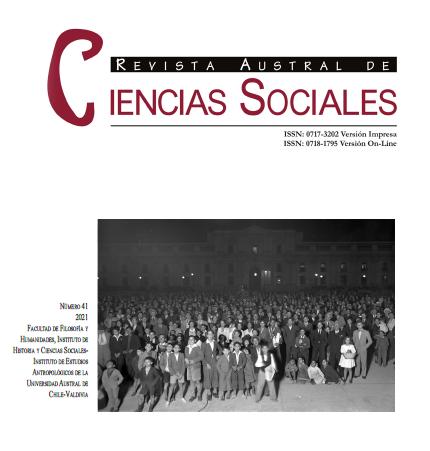Eternidad religiosa y tiempos políticos. Estructuras temporales de la política chilena en el pensamiento de Jaime Guzmán
Conteúdo do artigo principal
Resumo
Basados en las teorías del rol de las estructuras temporales en la configuración de las relaciones y discursos del poder, este artículo analiza los sentidos y formas de articulación del tiempo histórico en el pensamiento político de Jaime Guzmán. Se muestra que existe en este autor una doble estructura temporal. Una subyacente que permanece constante entre sus primeros y últimos escritos, sustentada en la antropología religiosa predominante en Guzmán, la que impulsa la búsqueda de un orden político permanente que ofrezca garantías para la vida espiritual. Y otra de tipo variable, en la que se privilegia el pasado, el presente o el futuro como fuente de sentido dependiendo de las necesidades pragmáticas del contexto político. En términos metodológicos, se revisan sus escritos en cuatro contextos: el previo a 1973, la justificación post golpe militar, la elaboración de la Constitución de 1980 y la transición hacia la democracia.

